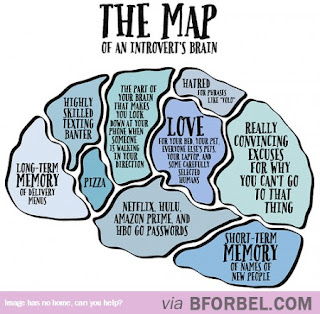Field Trip Prep; Gilgamesh
Prep for Field Trip to MCC:
The Brain: the human brain, the largest of the mammal-kind relative to body size, is the command center for the nervous system of the body. It receives input from sensory organs (sight, sound, touch, taste, smell--hey! IMAGERY!) and sends messages from this input to the rest of the body (muscles, etc.). The normal human brain averages about 3.3 lbs. and is comprised of over 86 billion nerve cells (neurons -- grey matter) and nerve fibers (axons and dendrites or "white matter"), all closely spaced together with synapses. Anyway, there's the major parts of the brain: the cerebrum (forebrain), the cerebellum (the hindbrain), and the brainstem (the midbrain). The cerebrum is divided again into the cerebral cortex with its four lobes (the frontal lobe, the temporal lobe, the parietal lobe, and the occipital lobe). Anyway, enough of that medical talk. The whole thing remains a complex system, essential to thinking, feeling, learning, singing, writing, talking, remembering, and all other mental functions.
Article: "The Most Popular Office on Campus"
Period 2: Gilgamesh. Complete your Gilgamesh projects. We will present them Tuesday.
HOMEWORK: Develop at least 1 page of something you wrote during our brainstorming/generating ideas section. Complete your Gilgamesh projects if you did not complete them during class.
Coffeehouse tonight at 7:00, Ensemble Theater.
The Brain: the human brain, the largest of the mammal-kind relative to body size, is the command center for the nervous system of the body. It receives input from sensory organs (sight, sound, touch, taste, smell--hey! IMAGERY!) and sends messages from this input to the rest of the body (muscles, etc.). The normal human brain averages about 3.3 lbs. and is comprised of over 86 billion nerve cells (neurons -- grey matter) and nerve fibers (axons and dendrites or "white matter"), all closely spaced together with synapses. Anyway, there's the major parts of the brain: the cerebrum (forebrain), the cerebellum (the hindbrain), and the brainstem (the midbrain). The cerebrum is divided again into the cerebral cortex with its four lobes (the frontal lobe, the temporal lobe, the parietal lobe, and the occipital lobe). Anyway, enough of that medical talk. The whole thing remains a complex system, essential to thinking, feeling, learning, singing, writing, talking, remembering, and all other mental functions.
Article: "The Most Popular Office on Campus"
Period 2: Gilgamesh. Complete your Gilgamesh projects. We will present them Tuesday.
HOMEWORK: Develop at least 1 page of something you wrote during our brainstorming/generating ideas section. Complete your Gilgamesh projects if you did not complete them during class.
Coffeehouse tonight at 7:00, Ensemble Theater.



Comments